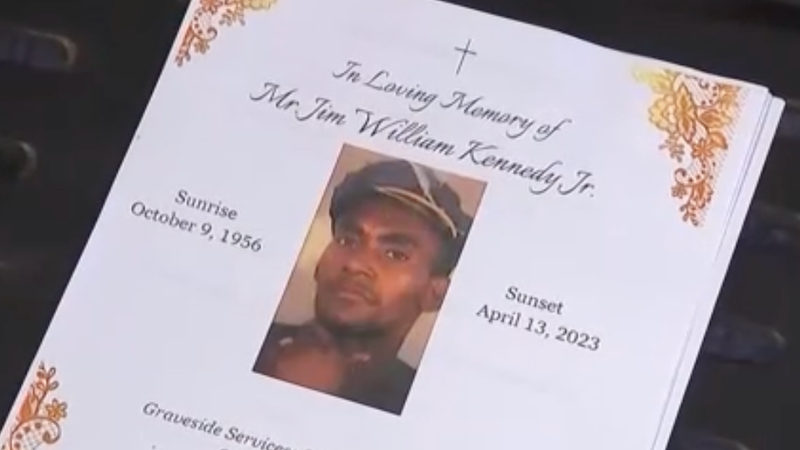Funeral Homes Reported to Families That Loved Ones’ Organs Were Missing. It Gets Worse

The families of nearly seven deceased Alabama inmates filed lawsuits against the state Department of Corrections over a gruesome finding that made funeral arrangements all the more painful.
They say they received calls from the funeral homes reporting that their loved ones’ organs were missing.
The family of Jim Kennedy Jr., an inmate who died last year at the Limestone Correctional Facility, told CNN they received a call from the funeral home inquiring about a missing heart, liver and other major organs. Only his eyes were left.
Anthony Perez Brackins also died last year while serving a 21-year sentence. The report says his family was also notified by the funeral home that his body was hollowed out. The family of Kelvin Moore told the outlet they experienced the same.
“It’s just an atrocious act to know you’ve done that without our permission and we would not have agreed to it on any terms. We don’t want this to happen to another family and it could be anyone, because everyone knows someone that’s incarcerated,” Simone, Moore’s brother, said via Andscape.

Their stories are just a few of many who came forward in a lawsuit claiming the DOC is up to some shady work and asserting the fact none of their loved ones were registered organ donors.
“It’s a systematic abuse situation. But so many of these cases went completely unnoticed because families don’t typically think they need to do a second autopsy. Many of them can’t afford it, even if they wanted to,” said attorney Lauren Faraino, who is representing the families, via Andscape.
Suspicions as to who writes off on the alleged theft of inmate internal remains points to two places: The University of Alabama at Birmingham Heersink School of Medicine and the DOC prison warden.
Read more from CNN:
Under an agreement between two state institutions with divergent missions, UAB said it conducts autopsies for the corrections department, which is “responsible for obtaining proper authorizations from the appropriate legal representative of the deceased.”
Under an autopsy agreement between corrections and the UAB Board of Trustees dating to around 2005, the warden signs off as the “legally designated representative and therefore am legally entitled to grant permission for the completion of an autopsy and the removal of organs or tissues for further study on said inmate.”
Since 2018, the report says UAB students have repeatedly raised concerns about the overwhelming amount of pathology samples stemming from prisoners’ remains who appeared to not only have died in the facility but also had untreated medical issues ahead of death.
“These people are dying sicker, dying with less care and they look sicker, their bodies look sicker and we get to learn from that. That’s supposed to be a win for us?” said one anonymous student to CNN.
In 2021, Gov. Kay Ivey signed a bill prohibiting forensic personnel form retaining organs after autopsies without first asking the next of kin for permission. However, with incidents happening as recent as 2023, these lawsuits suggest no ones cared to follow the law.

